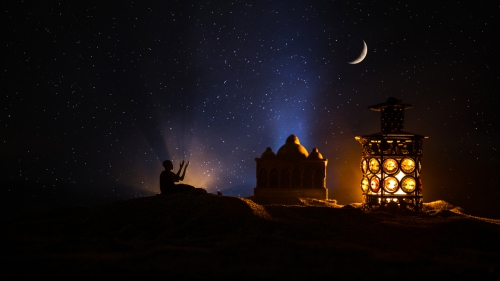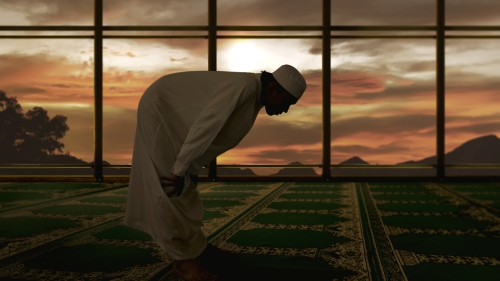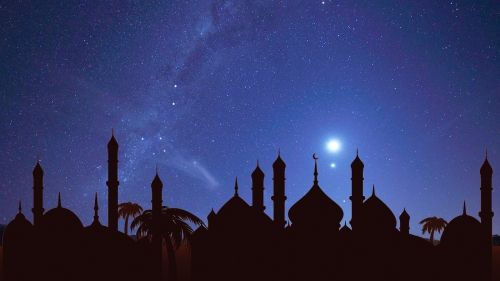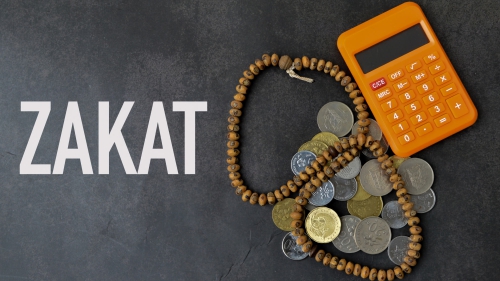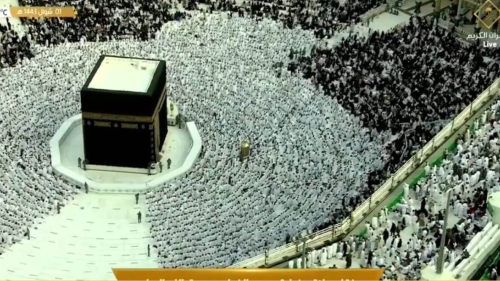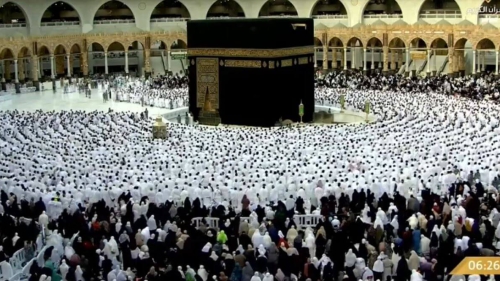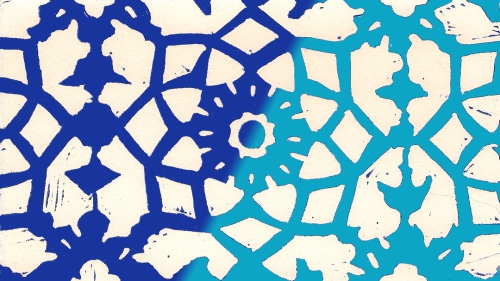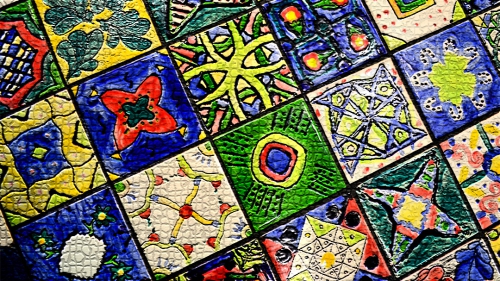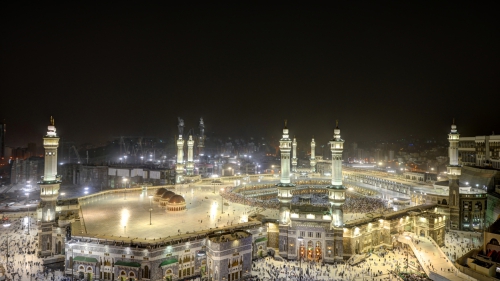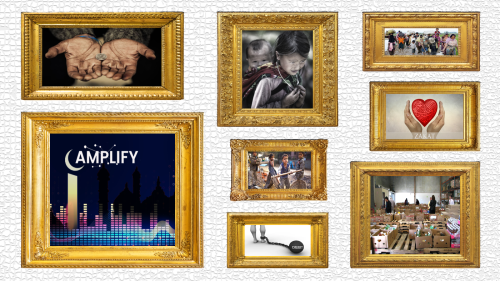Interfaith Science of Ramadan: The Essence May be Traceable in Your Faith
 {file:content.php} {function:blp_getCustomField} {postID:9020} {customField:theClapCount} {default:0}not-in-use-in-plain-child
{file:content.php} {function:blp_getCustomField} {postID:9020} {customField:theClapCount} {default:0}not-in-use-in-plain-child



Whether you are an Atheist, Baha'i, Buddhist, Christian, Hindu, Jain, Jewish, Native American, Pagan, Shinto, Sikh, Wicca, and Zoroastrian or from any other tradition, you may feel a sense of connection with the spirit of Ramadan.
God is a word for the cause that creates, sustains and recycles this universe, and belongs to all that exists and is not the exclusive dominion of anyone. No matter how and what name you call upon him - he (she or it) cannot be a different causer for each one of us.
The physical aspect of human journey from the sperm and an egg stage through the death is programmed precisely. The formula is same for all of humanity; and there is no such thing as a Christian, Jewish, Muslim, Hindu or other gene.
Regardless of what is being said about origins in terms of evolution, creation or the big bang, the undeniable fact is our existence, and we have to figure out how to live with each other.
When the universe came into being, two main products of the process were Matter and Life.
While the matter is programmed to be in self-balance and functions precisely for which it is designed, like the Sun, Jupiter, Earth or the Moon playing its part, the (human) life on the other hand was not programmed; we were given complete freedom, guidance and intelligence to create our own balance for survival.
A balanced society is where every one of us functions cohesively in small parcels of this big World Wide Web. It is sustained by respecting the otherness of others and accepting the God given uniqueness of each one of us. If we mess with the web, we mess with ourselves ultimately. If we mess with the environmental balance we will pay for it, just as we bear the loss of health if we mess with what we eat, drink and smoke. There is a consequence for imbalance.
Birth of Religion
We lose the balance if we don't trust and lie to each other, rob the other, and not keep the promises we make to fellow beings. This is when religion appears; it is the love of the creator for his creation, just as a mother loves her children -someone among us will rise and restore that balance. Didn't Moses, Krishna, Buddha, Jesus, Muhammad and other masters restore the righteousness and balance in the society? I hope you can relate with this thought in your own scriptures and legends.
An identical spiritual wisdom emerges in different parts of the world simultaneously; the greatest example would be how a mothers figure out what to do with her crying baby in the jungles of Amazon or the high society in London.
Indeed, beauty is in the eyes of the beholder, and as a corollary I would say, faith is in the heart of the believer, and every religion is dear to its believer.
Religion is about love for fellow beings, a majority of us in every religion get that right but for a few, who keep messing up the cohesiveness of the society. Those few are not an identifiable group, but the infraction in each one of us when we become biased towards the others. Religion is never the problem; it is the individuals who don't get their religion right are the problem.
Ramadan and you.
From the moment we are born to the last rites of our life, and every moment in between is laden with rituals, even though some of us may deny it. Whether we go to the gym, eat, sleep, wear clothes, drive or talk on the phone, we follow rituals.
Rituals signify the milestones of our daily life. Every significant moment of the day is a ritual. It is an unwritten way of measuring our progression, a memory pattern to bring discipline to our actions.
Discipline is necessary to do things on time, manage personal relationships, drive to a destination or keep within budget. The result of disciplined behavior is worthwhile for most people. When we are joyous, whether we are a theist or not, we have to express that sentiment, otherwise a sense of incompleteness lingers in our hearts.
The spiritual masters have captured the human gravity towards rituals and have molded it with the art and science of self-discipline in their respective religions. The noble purpose of each one of them was to bring a balance in our lives and a balance with our environment.
Every faith is composed of a set of unique rituals to bring discipline and peace to human life. Fasting is one of the five key rituals that Muslims around the world observe.
Ramadan is the ninth month of the Islamic lunar calendar and is generally observed with a ritual precision; it is an annual training or a refresher. It requires one to abstain from food, drink, intimacy, ill-will, ill-talk, ill-actions and other temptations from dawn to dusk, every day for a month. One has to rise above his or her baser desires. Islam gifts this month to its followers to inculcate discipline to bring moderation to their daily lives. Twenty five hundred years ago, Buddha, the enlightened one taught that human suffering is caused by unrestrained desire to possess and had recommended a middle path, and the same recommendation was made by Prophet Muhammad fourteen hundred years ago.
Although Ramadan is popularly known in the west for its culinary delicacies and fancy iftars (ceremonial breaking of fast at sun down), the spirit and intent of Ramadan lies in a human transformation in a month-long inner spiritual journey of finding oneself in tune with spirituality.
Hindus can see that transformation in nine days of fasting during Navaratri, the Jains in 8-10 days of fasting during Paryushana, Christians during 40 days of lent, Jews for 7 days around Yom Kippur . . . .likewise you find fasting is a way of life in most traditions.
God has no need for the hunger or thirst of someone who hurts others, violates their dignity or usurps their rights, said Prophet Muhammad (PBUH). The fasting of the stomach must be matched by the fasting of the limbs. The eyes, ears, tongue, hands and feet all have their respective fasts to undergo. The tongue's temptations, for example -- lies, backbiting, slander, vulgarity and senseless argumentation -- must be challenged and curbed to maintain the integrity of the fast.
Consciousness of behavior and vigilance over action are the most profound dimensions of fasting: the fasting of the heart focuses on the attachment to the divine. That is when Ramadan really becomes a source of peace and solace, just as Christmas or Dussera goes beyond the rituals to bring forth kindness, charity and caring.
True fasting is self-purification; and from this comes a rich inner life that bring about values such as justice, generosity, patience, kindness, forgiveness, mercy and empathy -- values that are indispensable for the success of the community.
Knowing about hunger is different from knowing hunger. Empathy is not an intellectual equation; it is a human experience. Our hardness of heart often springs from our distance from the human condition of others. The poor, sick, disenfranchised, oppressed -- we rarely walk a mile in their shoes, not even a few steps. "Rest assured," cautioned one teacher, "if you do not taste what it feels like to be hungry, you will not care for those who are."
Ramadan will come and go with such stealth that we cannot but be reminded of our mortality. What is it that we value and why? Habits, customs, even obsessive behavior like smoking can be curtailed with relative ease in the face of a higher calling.
For fasting to be truly universal, its benefits must extend beyond the fraternal ties of Muslims and must extend to forging a common humanity with others. Fasting is meant to impart a sense of what it means to be truly human, and its universality is reflected by its observance in Baha'i, Buddhist, Christian, Hindu, Jain, Jewish, Sikh, Zoroastrian and other faiths.
Let the spirit of Ramadan develop an understanding and respect for each one of God's creation - that is all of us. Ramadan Mubarak!
Topics: Ramadan Channel: Ramadan
Views:3882
Related Suggestions
In accordance with Title 17 U.S.C. Section 107, and such (and all) material on this site is distributed without profit to those who have expressed a prior interest in receiving the included information for research and educational purposes.



